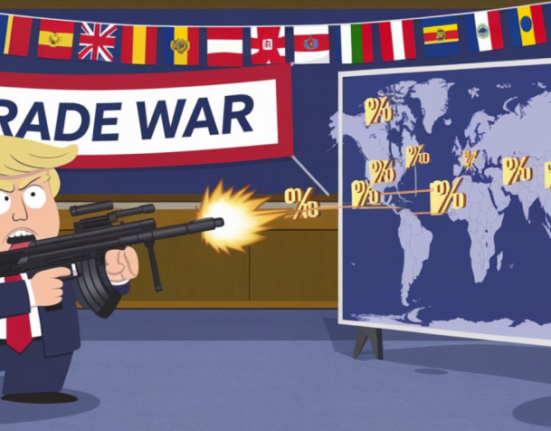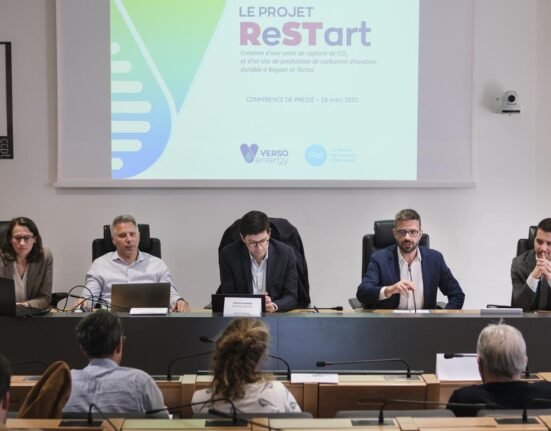LINCOLN — The “absolute minimum” property tax relief plan in the Nebraska Legislature inched closer to passage with small changes Friday, as lawmakers swatted down a proposed “compromise” for counties and municipalities.
Legislative Bill 34 advanced 39-8 to a third and final round of debate. It would add $185 million in new tax relief and repurpose an existing $565 million in relief. It represents 3% in new state investments, based on the $5.3 billion property tax burden in 2023, or 32% more in existing relief.

State Sen. Brad von Gillern of Elkhorn, vice chair of the Revenue Committee, has described the amended LB 34 as the “absolute minimum” that lawmakers should pass during the special session. But he said the legislation would have an impact, particularly for middle- or low-income property owners.
That’s because the current program requires taxpayers to request a refund for property taxes paid as an income tax credit. About 50% of existing credits have gone unclaimed, likely by taxpayers who don’t have a tax professional helping them, von Gillern said. If passed, the credit would appear on property tax statements, instead of relying on a later refund process.
“Getting the money to where it goes matters,” von Gillern said.
‘Air to breathe’
The final part of the bill would set caps on how much more municipalities and county governments can collect in property taxes from the year before. LB 34 would cap that amount at the greater of inflation or 0%, allowing collections to remain flat in deflationary times.
Inflation would be defined as the State and Local Consumption Expenditures and Gross Investment index.
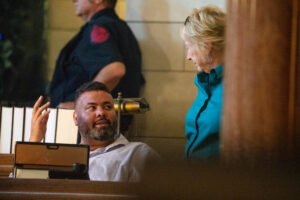
State Sens. Justin Wayne of Omaha and Merv Riepe of Ralston sought to increase the cap based on concerns from municipalities and counties. Their amendments would have replaced inflation to be the Consumer Price Index and would have raised the floor to 2.5% or 3%.
“This gives counties and cities air to breathe,” Wayne said of his amendment.
The Nebraska Association of County Officials and League of Nebraska Municipalities have said the 0% cap is a “non-starter.” That’s largely because of employee wage increases or other obligations that don’t remain flat in times of deflation and are set years in advance.
The executive directors of those organizations, Jon Cannon for counties and Lynn Rex for municipalities, have noted there are already annual spending limits for local governments. LB 34 would replace those with the caps on property taxes instead.
They negotiated with Gov. Jim Pillen and lawmakers for months last year before landing at CPI and 3% in LB 388, which failed to pass in the spring.
Rex and Cannon have said the lower caps would negatively impact quality of life for Nebraskans, perhaps not in the first year but eventually decreasing the quality of roads or bridges and leading to fewer parks, libraries or swimming pools.
No ‘watered-down caps’
Pillen, who called the property tax special session, issued a statement Friday that he would veto any “watered-down caps” from those advanced Tuesday.
He also pointed to exceptions to the caps, including public safety services, county attorneys, public defenders, emergencies and votes of the people.
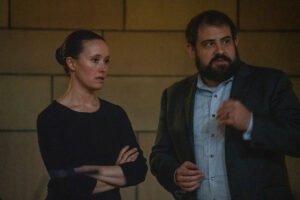
“While the current state of the property tax relief plan will deliver real relief to real, hardworking Nebraskans, any further compromises would fall short of Nebraskans’ minimum expectations of the Legislature for this special session,” Pillen said. “Nebraskans know that unchecked government spending is a major driver of our spiraling property tax crisis.”
State Sen. Eliot Bostar of Lincoln said earlier in the week that the changes were fundamentally good for Lincoln and Lancaster County. He said the new caps provide better flexibility for those local governments to utilize their resources, in part because of the existing spending caps.
“They currently can’t use all of the resources they have available to them, and I’m not even talking about property taxes,” Bostar told the Nebraska Examiner. “I’m just talking about the full portfolio of resources that are available to our communities.”
Doesn’t touch sales taxes
Earlier in debate, it appeared lawmakers might consider removing up to a dozen sales and use tax exemptions, adding a tax to select services in order to raise new revenue that had been part of earlier tax plan drafts.

State Sen. Lou Ann Linehan of Elkhorn, the Revenue Committee chair, ultimately withdrew those amendments without debate after opponents of those efforts — State Sens. John Fredrickson of Omaha, Danielle Conrad of Lincoln, Julie Slama of Dunbar and Rob Dover of Norfolk — began to line up to protest the suggestions.
“At this point, this special session is, it’s kind of crawling towards the finish line here,” Fredrickson said. “It’s wounded, and it’s getting difficult to watch.”
Technical changes
Lawmakers instead embraced technical changes, including one that would allow local governments to ask voters to override the property tax caps at a May special election in odd-numbered years, in addition to the ability to propose an override vote during statewide primaries or general elections in even-numbered years.
Most local governments don’t have regular elections in odd-numbered years, Linehan noted.
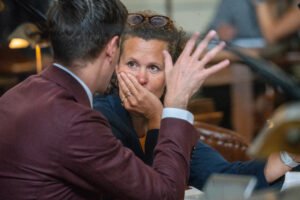
State Sen. Jana Hughes of Seward said she appreciated the change but suggested it should be anchored in November instead, as the local budgeting process finishes in the fall. That change could come in 2025.
”I kind of see this special session as a first little baby step with a lot more to come,” Hughes said.
It’s unclear whether there will be more changes to LB 34. The final round of debate is limited to an up-or-down vote and could come as early as Monday. If lawmakers seek changes, it would push back final passage by at least a day — only one amendment can be adopted per subsequent debate, according to legislative rules.
State Sen. Mike McDonnell of Omaha repeated the view he and other term-limited senators voiced Thursday, that more could be done, and that it’s not “too late in the game.”
“The problem is not going to stop unless we do something,” McDonnell said during debate. The governor starts the special session, we end it.”
GET THE MORNING HEADLINES DELIVERED TO YOUR INBOX


